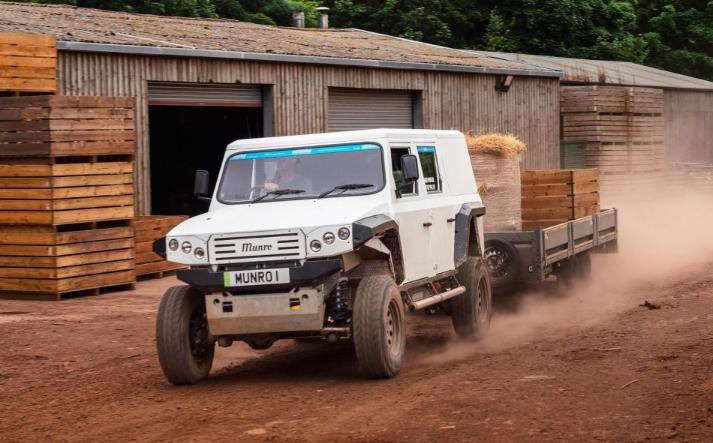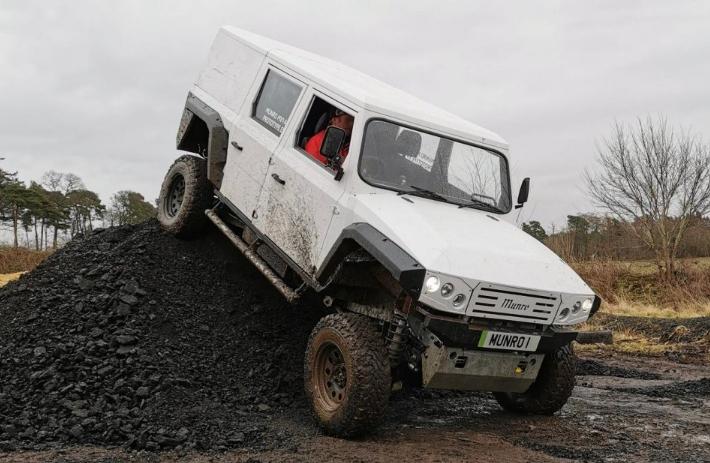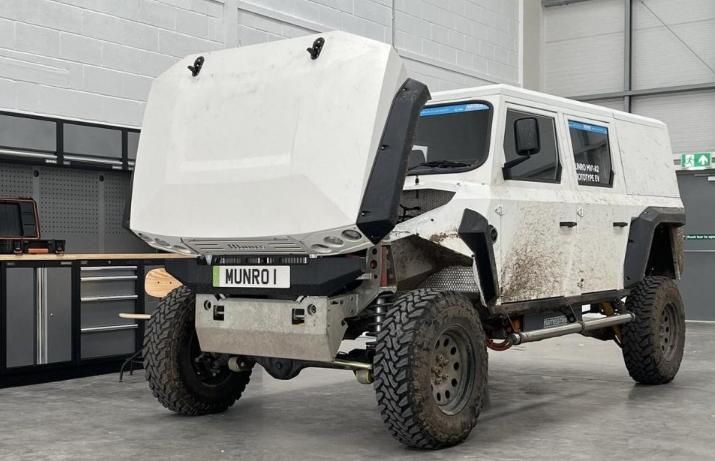
Scottish electric vehicle start-up Munro Vehicles will soon unveil its first production vehicle, the Mk1 electric SUV.
The presentation of the “world’s strongest electric SUV” will take place on December 5 in Edinburgh, and on this occasion the company released a teaser sketch. The modular design of the vehicle will allow it to be customized for specialized applications or commercial use in the most severe operating conditions, with an almost infinite service life.

A company press release says the Mk1 delivers 375 horsepower. With. and 700 Nm of torque, uses an 80 kWh battery, with a claimed range of 270 kilometers. Mk1 supports AC charging up to 22 kW and DC charging up to 100 kW, which means it can be charged from 15 to 80% in 36 minutes. But the main advantage of the Mk1 is its off-road capabilities, which are in demand in the forestry, mining and agricultural industries. It is equipped with an all-wheel drive system with a two-stage transfer case and a locking differential, a ground clearance of 45 cm to the body, and 29 cm to the bottom of the bridge. The depth of the ford to be overcome is one meter.

Munro designed the Mk1 to be an indestructible workhorse, with a towing capacity of 3.5 tons and a payload of up to 1,000 kg. The five-door and five-seat vehicle uses a galvanized steel chassis and aluminum body panels. “We decided from the very beginning not to reinvent the wheel. Simple and easily accessible components minimize manufacturing costs and provide owners with affordable maintenance and repair,” said co-founder Ross Anderson. It is planned that Munro’s main customers will be the oil and gas, mining and forestry industries, as well as the energy sector. Production of the Mk1 will begin in Glasgow later this year, with the first vehicles expected in 2023. The exact prices will be announced at the start of production, but the estimated cost is 98.5 thousand dollars (6.2 million rubles). In the first year, the company expects to sell about fifty SUVs, increasing their number to five hundred in 2024 and two and a half thousand in 2025.
- Share:
